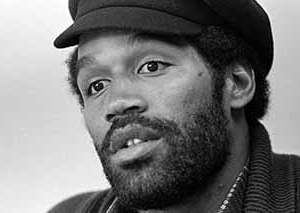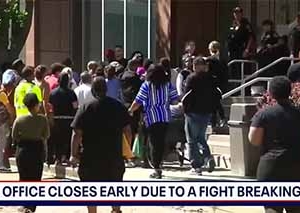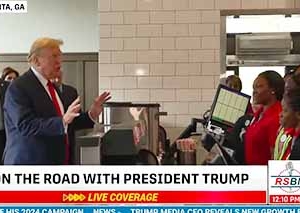
Oklahoma City’s KOCO-TV morning anchor Alex Housden tearfully apologized to her co-anchor Jason Hackett after comparing him to a gorilla during a broadcast on Thursday, Aug. 22.
The tearful apology came on Friday – a day after Housden compared Hackett to a gorilla at the city zoo.
The incident occurred near the end of a segment about a gorilla at the Oklahoma City Zoo. Housden, who is white, turned to Hackett, who is Black, and said the animal, “Kind of looks like you.”
Hackett agreed with his co-anchor, saying, “He kind of does, actually, yeah.”
After a Facebook user uploaded the video clip, the comments lit up with users expressing their outrage and condemnation at Housden and at KOCO-TV for allowing an environment where anchors felt comfortable comparing their Black colleagues to gorillas. Many called the video clip “unbelievable.”
The next day (Friday, Aug. 23), Housden issued her tearful apology, saying her comment was “inconsiderate”.
She also apologized directly to the viewing public, saying, “It was inappropriate, and I hurt people. I want you to know I understand how much I hurt you out there and how much I hurt (Hackett).
“I want you all to know from the bottom of my heart I apologize for what I said. I know it was wrong, and I am so sorry.”
Housden said she would “never do anything on purpose to hurt Hackett.”
It’s difficult to tell from the grainy video if tears were actually flowing while she apologized.
Hackett graciously accepted her apology and added that while he laughed along with her gorilla joke, it really hurt his feelings.
“What she said yesterday was wrong,” Hackett said. “It cut deep for me, and it cut deep for a lot of you in the community.” He said the incident was a “teachable moment” to tell [racists] that “words matter.”
Some people are raised in environments where racial slurs are spoken daily. But Hackett said that’s no excuse.
“We’re becoming a more diverse country, and there’s no excuse. We have to understand the stereotypes. We have to understand each other’s backgrounds and the words that hurt, the words that cut deep,” Hackett said. “We have to find a way to replace those words with love and words of affirmation, as well.”





